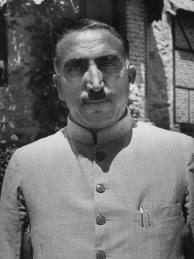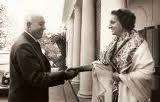Peace Watch » Editor's Take, Kashmir-Talk » Understanding Dynamics of Electoral Politics in Kashmir.
Understanding Dynamics of Electoral Politics in Kashmir.
Z.G. Muhammad
Some forty two years back a leading New Delhi newspaper had published an editorial titled, “Weep Over This Victory”. This incisive and piercing commentary on the 1972 State Assembly elections, had stirred my young mind and made me think if ‘electoral politics’ in the state could ever be credible. Thinking this piece of writing was worth preserving for posterity I had pasted it on a white sheet of paper. It was part of my small archives till silverfish feasted upon it and consumed it completely but during many an elections including those held after 1996, I re-read it and found it as apt for all the elections held in the state as it was at the time of its publication. All these election with much trumpeted songs of democracy about call for a lament.
Since its birth in 1955, the Jammu and Kashmir Plebiscite Front had boycotted all the elections held in the State. Not only leaders of this party but all dissenting voice were detained during these elections. Nonetheless, the cadres of the party carried election boycott campaign to the embarrassment of the ruling elite and often succeeded in putting note of interrogation on the whole electoral process. Towards end of 1970, there was change of heart in the Front leadership and as Sheikh Abdullah writes in his autobiography, ‘the party was eager to participate in the elections.’
In early January, the organization opened its cards and made its intentions for participating in the forthcoming Parliament elections once again public. Earlier in 1969 after victory in local bodies’ elections Sheikh Abdullah had announced Front will be joining the electoral politics. The decision of PF joining elections should have been welcomed. Nevertheless, it unnerved the powers that be in New Delhi. Before flying to Srinagar for making announcement regarding participation in the elections Sheikh Abdullah met Pakistan High Commissioner in New Delhi and handed over a cheque from people of Kashmir for cyclone affected people of East Pakistan. Sheikh was stopped from flying to Srinagar and “externment” orders were served on him and other top PF leaders camping in New Delhi ‘forbidding them under Indian Maintenance of Public Order from visiting the State initially for three months. Some four hundred leaders and workers of this organization were arrested under Preventive Detention Act (PDA). Hundreds of college and university students were also arrested under the same law. Couple of days later, the Front was declared as an unlawful association and was prevented from participating in the elections. P.K. Dave the then Chief Secretary had justified the action by stating that Sheikh Abdullah and his party was involved in subversive activities. How true is a big question? Nevertheless, the Front did put a symbolic resistance against preventing it from fighting in the election by supporting an independent candidate- not even remotely supporting its ideology. The victory of the independent candidate against Bakshi Ghulam Mohammad, former Prime Minister of the State who was instrumental in deposition of Abdullah was seen as vindication of the popularity of SMA and the Front.
The triumph of an independent candidate against an important man Fridays of New Delhi in the State had made the establishment more cautious . In 1972, when the party very subtly announced its intent of participating in the Assembly elections, it was not allowed. In this election according to official figures sixty two percent people voted. In a house of 72, Congress won 59 seats, BJP 3, Jammat-e-Islamia 5, independent 11, which include some expelled members of the Front and two sponsored by AAC. To give make the exercise look genuine, Mrs. Gandhi had guided the Congress leadership to allow proxies of ostensibly a pro-right to self-determination parties and another politico-religious organization into the Assembly. Notwithstanding, giving a façade of fairness to these elections, stopping the PF from participating in these elections had put a question mark on the whole process. Many newspapers had questioned validity of these elections and even the ‘ultra –nationalist’ press in New Delhi had questioned it and seen it contradiction to inviting voices of dissent to participate in electoral politics.
. In 1972, when the party very subtly announced its intent of participating in the Assembly elections, it was not allowed. In this election according to official figures sixty two percent people voted. In a house of 72, Congress won 59 seats, BJP 3, Jammat-e-Islamia 5, independent 11, which include some expelled members of the Front and two sponsored by AAC. To give make the exercise look genuine, Mrs. Gandhi had guided the Congress leadership to allow proxies of ostensibly a pro-right to self-determination parties and another politico-religious organization into the Assembly. Notwithstanding, giving a façade of fairness to these elections, stopping the PF from participating in these elections had put a question mark on the whole process. Many newspapers had questioned validity of these elections and even the ‘ultra –nationalist’ press in New Delhi had questioned it and seen it contradiction to inviting voices of dissent to participate in electoral politics.
From the day Sheikh Abdullah was deposed- more particularly after the formation of the Plebiscite Front Jawaharlal Nehru and his successors were working on bringing Sheikh Abdullah and his companions back to the electoral politics. In “dominant discourse” it is described as “main stream” politics. And when Sheikh Abdullah was keen to join back the electoral politics the question arises why was he prevented. This question is as relevant today as it was in 1972, when newspaper had described victory of Congress party in the state as an elegy on Indian democracy. This question has been best answered by former Chief Minister of the state in his autobiography. I for one see Syed Mir Qasim’s answer to this question  as a subtle commentary on the election held in the state from 1950 till date. It needs to be quoted a bit in detail:
as a subtle commentary on the election held in the state from 1950 till date. It needs to be quoted a bit in detail:
” The Plebiscite Front’s participation in the State could complicate the matters. My reason: if the elections were free and fair, the victory of the Plebiscite Front was a foregone conclusion. And as a victorious party, the Front would certainly talk from a point of strength.” (P132)
That “talking from point of strength is unacceptable to New Delhi” is as clear and loud today as it was during the 1972 Assembly elections. True, this strategy worked with Sheikh Abdullah and made him believe as Alastair Lamb puts it, “Indira Gandhi alone held key to his return to power.” And he made total about turn. He also convinced, Mrs. Gandhi that he was “reformed person”. In his autobiography Abdullah makes an open admission about it and writes, “I told my friends that I had no quarrel with centre regarding accession.” And his Lieutenant Afzal Beg satisfied New Delhi further that neither Sheikh Abdullah nor the Plebiscite Front intends to talk New Delhi from any point of strength by stating that ‘the question of accession has become irrelevant we no more insist on plebiscite”. There can be no denying that not talking from the point of strength catapulted the Front leaders to powers and ensured power to generations of Abdullah family. It brought them within the fold of the electoral politics. But, the bigger question remains did the PF joining the electoral politics help in ending the political uncertainty in the State……
The article appeared in the Greater Kashmir on 3-11-2014
Filed under: Editor's Take, Kashmir-Talk








